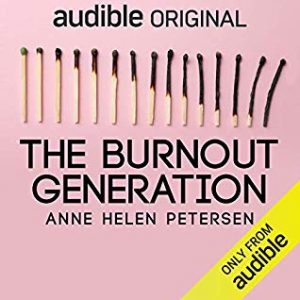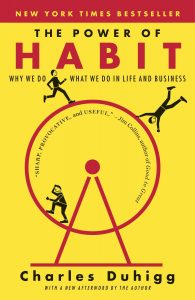This article originally featured in the December 2019 issue of Connect.
How to Unclutter Your Mind and Routine
Teresa Fong (Tokyo)
I’ve always thought I was a lot of things growing up, such as a night owl in love with the cold who could hold my expectations in place. The problem is that I really hate the cold, I can’t function past 8:00 p.m., and all I do is anticipate the potential results! I wanted to think that I could stay out like the people in my age group and be “super chill” about the things happening around me. Honestly, it’s natural to think that you’re perfect and immune to negativity like I naively did. But guess what? You’re not. I certainly wasn’t. I still am not. You will get stuck in this loop where you’re repeatedly feeling like elephant dung drying out in the sun. Here’s a fact coming at you fast: you’re not elephant dung, but if you are feeling like dung, at least be Asian Palm Civet dung, the fecal matter that makes the world’s most expensive coffee.
Reflecting back, I realize I felt like elephant dung because I was lying to myself a lot. I said I liked the cold, but I didn’t, especially in my current apartment that doubles as a refrigerator. I was just used to it. I’m from Boston, a very cold place. As someone suffering from hyperhidrosis, a condition making the human body sweat uncontrollably in obscene quantities, it was obvious why I’d say I like the cold more, but honestly, I like spring and summer because things are bright! Things are colorful! Things are just happier. Each lie I told was one shovel worth of dirt thrown in my face and in the end, I found myself in a very dark hole.
My Pasta Hole
I found that getting out of that dark hole and eventually improving yourself is a multi-step process. The first being the need to recognize that you are susceptible to failure. Being a foreign resident in Japan means you’re likely have a sprinkle, or a large scooping, of culture shock on top of swallowing that hard truth. Culture shock may manifest in many ways and you should not believe anyone who says that they never experienced it. In my own case, I realized I had it with my “spaghetti” incident. Some strands of spaghetti had slipped out as I tried to drain the water, and I just lost it. I tossed everything down the drain thinking I failed in life. Somehow those strands of spaghetti equated to my success in life.
I honestly wish I can say, “These are the steps that changed my life!” like a clickbait article, but clickbaits are usually false anyway, right? I did a variety of things to get to where I am, and where I am now is a place where I can predict when I will slip and fall into that hole again. Nonetheless, there are my proven actions that could help to improve your own happiness.
Take Charge of Your Day Like a Boss

I recently listened to the Audible original called, “The Burnout Generation” by Anne Helen Petersen. It was a very enjoyable listen, and in that audiobook is the first time I heard the term “project manage happiness.” Petersen was actually saying that we cannot project manage our own happiness, but I like to disagree. In some degrees, you can and actually should project manage your happiness. After all, you must actively ensure that your actions will become habits that end up benefiting your lifestyle and mindset.
I believe we all know about the power of habits. Charles Huigg wrote the award-winning book called, “The Power of Habit: Why We Do What We Do in Life and Business” carefully explaining how 40 to 95 per cent of your day is made up of routine behaviors. Ever since I learned that this is the case, I started to slowly add habits I think will improve my life. When I say slowly, I mean one new habit every two months at least. You don’t want to overwhelm yourself and end up failing before you begin after all.

I tried to combine the two lessons I learned from the readings to the following:
- Manage my day like it’s a project
- Analyze your day for open periods where you can slowly add in new habits that you think will improve your situation
I personally use Google Calendar, as you can use it on a browser and on your phone as an app, but feel free to go “old school” with an agenda book or “high tech” with a Gantt Chart. I found empty spots to add in habits targeting my physical and mental health.
Superhero Your Body
The very first habit I attempted to add into my life targeted my water intake. It sounds simple and easy, and that’s the point. When I dropped the entire pot of spaghetti into the sink, it was because I was tired of the cycle I found myself in but I had no energy to get out. See what I was missing? I was missing energy, big time! Regularly drinking enough water has been proven to have many benefits, such as aiding digestion (good if you’re not used to eating so much rice) and preventing your body from overheating (good for the oppressing summers here). On top of all those benefits is that water helps clear clouded-thinking and increases energy levels. The increase isn’t significant immediately, but it’s one tiny step to get the energy to do “larger actions” to avoid having an emotional car crash.
What are the “larger actions” I am referring to? Physical activity! You need to be at least a little energized to get out of your warm bed. I know, this is so much harder in the cold, dark winter, but it’s worth it. Have you noticed that as the days get shorter and the amount of sunshine we are showered with gets smaller, you feel so much more tired? Do you know why? It’s because of melatonin, the “darkness hormone” as nicknamed by Dr. Matthew Walker. This hormone circulates throughout our brain and body, shouting at our cells to go to sleep. When sunshine floods our brain though, it pauses the release of melatonin. That means we’re more energized and less sleepy. Doctor Walker suggests “infusing our brain” with at least twenty minutes of daylight in the morning. Consider this twenty-minute session a multipurpose preventative action because not only does daylight exposure in the morning help you feel more energized, Dr. Walker says it can also lead to better sleep in the evening. Don’t you love a 2-for-1?
Now getting out of bed to get a twenty-minute sun shower hardly qualifies as physical activity (unless you’re taking a jog outside), so do yourself a favor by doing a 15-30 minute workout. Future You will appreciate this more than you can imagine. There are reports that have found that vigorous exercise at least three times a week is effective against that darn seasonal depression, which is quickly increasing in strength thanks to the approaching winter. Don’t have access to a gym? Don’t worry and don’t use that as an excuse. There are many YouTubers dedicating their channels to workout routines that can be done right inside an apartment. My favorite is Fitness Blender because this wife-husband pair never tells you to work out to look a certain size. They encourage you to do what’s hard for you to become a better version of yourself. It’s all about beating Past You’s records. They also offer a variety of styles of exercise in case you have a knee injury or simply don’t want to enrage your downstairs neighbors.
It should be noted that I didn’t eat that many vegetables before I started my habits. The lack of fruits and vegetables translated to sluggish movements. When I first started this journey to improve how I felt, I didn’t actually think about the food I was eating. I simply focused on drinking water and exercising to boost my energy levels. I just accidentally started eating better because I found a cheaper grocery store selling frozen broccoli and mangoes, my favorite vegetable and fruit, respectfully. Many studies have repeatedly told us that healthy diets (I use this word to mean the kinds of food I’m eating, not the restriction of eating) will boost your moods. Needless to say, I have so much more energy thanks to the combination of these four “body” habits. You are what you eat, after all!

In short:
- Drink water!
- Bathe in natural sunlight
- Exercise at least 15 minutes a day for three times a week
- Eat well

Your Mind is a Weapon
What I do for the mind requires only a pen and paper. I journal every night before bed. I spend a couple of minutes (sometimes, seconds) thinking about my day and what impression it left on me. If it was a “bad” day, I find the silver lining. I focus on what I’m grateful for because I find that focusing on the good in every bad situation lifts my mood and helps me grow from the experience. Also, I don’t spend an hour writing out pages, but you can if you want. I write only about four short lines and sometimes I write nothing at all. I sometimes like to substitute it with a drawing to spice things up. In my bleakest period, I made myself write three things I was grateful for every day. Even if I thought I had nothing, I forced it out of me, which made me realize that I actually have so much to be happy about, such as being blessed to have my own apartment and a working laptop. Even when I wanted to screech out how there was nothing, I pushed myself to find that elusive silver lining that was always there in almost every situation.
Many people have tried meditation as a way to release emotional turmoil and to gain other benefits, but I personally haven’t started this habit yet. Of course, the idea of sitting silently with nothing to do may seem daunting (it definitely does to me!), but there are multiple techniques that make it a walk in the park. I read that you can start meditating for only five minutes a day and slowly increase the time. Another is to use a guided meditation session available on apps such as “Calm” or “Headspace.” As these guided meditations have scripts to purposefully help you relax, I highly suggest using the apps first if you feel antsy with silence. In case you were wondering what other benefits you can reap from mediation, they can include lower blood pressure, reduced anxiety, a decrease in pain, lessening depression symptoms, and an improvement in sleep. Perhaps I will start this habit right after I finish writing this article!
In short:
- Journal or write down at least three things you’re grateful for
- Meditate with guided sessions

Habit Track Your Life
It may be hard to track whether you drank enough water every day or exercised at least three times a week when you’re struggling to get out of a dark hole (potentially full of pasta). That’s why I recommend you use the app called, “Loop – Habit Tracker.” Unfortunately, it seems to be only available for Android users, but there are a lot of good alternatives out there to track your habits. “Loop” allows you to create widgets for each habit you want to track, so you can easily see if you’ve completed what you wanted for the day on your phone’s home screen.
Personally, I have two rows of habits I see every time I pick up my phone. Starting from the left, I have a widget tracking if I woke up before 7:30AM every day. Then, I have a widget tracking if I worked out for at least fifteen minutes and another for drinking at least two liters of water. I also have a couple for courses I want to complete, such as Graphics Design for Beginners, just because I’m curious about the field. I even have one recording each time I make an Instagram post that uses Japanese in order to ensure I’m using the language that I’m studying. This is what I mean by project managing your happiness. You have to actively carve time out of your day to do things you love and/or benefit your health.
Apps to Track Your Personal Development:
- Loop – Habit Tracker
- Streak
- Habitshare
Ball’s on Your Court
Now it’s time to apply this yourself. Look at yourself and pretend to be your sibling, your best friend, your partner, or anyone you don’t have to put up a fake face for. Pretend that person is asking:
- What pastime makes you smile? What activity leaves you feeling worse after finishing?
- Who do you think has it all? Why? What can you do to imitate their success?
- What is your motivation for doing these habits?
- Are you kind to (insert your name here)?
Use your answers to slowly add in habits that will help your self-growth. Overcoming culture shock and beating the obstacles life throws at you requires you to be honest with yourself, and most importantly, it requires you to be kind to yourself. We are our own harshest critics. Knowing that will help you not get stuck in a loop where you’re only putting yourself down.

What if you missed a workout? That’s completely fine! What if you didn’t drink enough water? That’s not a problem! Do not beat yourself up for missing a day or a week. Just pick yourself up and keep trying. That’s the primary idea of what self-improvement is. A week from now you’ll wish you started earlier. Time will keep flying by and you have two choices: (1) understand that you’re on a roller coaster ride and falls are bound to happen, but keep trying regardless, or (2) wallow and be your worst critic.
I hope we all pick #1. It’s so easy to push ourselves down as if we deserve it. Seeing yourself as your best friend would should allow you to treat yourself with patience, but this is a muscle you need to train and keep training. Consider taking an action that caters to the needs of your mental and physical health before you take up a shovel to dig a pasta hole. Now, let’s cheers to you!
Teresa Fong is Fiji-born, America-raised and is currently working in Tokyo. She loves listening to podcasts about self-help and crime. Currently on a mission to improve her digital art skills but a love for meeting with friends in new cafes gets in the way! She’s currently seven months into an ab challenge, giving her some amazing lines that unfortunately disappear the moment she bends down. You can check her out on Instagram at @imterryf.




